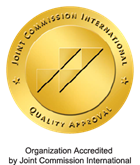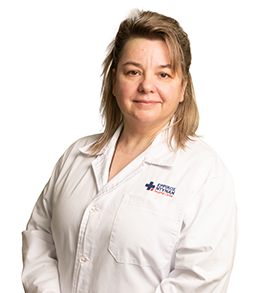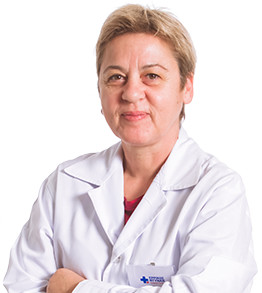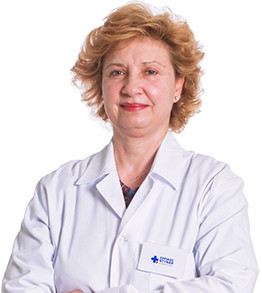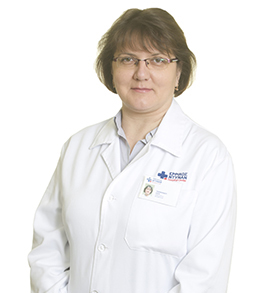
Diagnostic Laboratories
HDHC diagnostic laboratories operate on a 24-hour basis and are staffed by experienced physicians, Biopathologists - Microbiologists, Biologists, Biochemists and Laboratory Technicians. They are equipped with highly advanced medical devices and with state of the art analyzers. They cover the entire diagnostic spectrum and apply the most modern, sensitive and specialized techniques according to international standards. With the wide range of diagnostic methods performed they contribute to the prevention, diagnosis and monitoring of diseases. In addition, they provide full coverage in the diagnosis of infections utilizing state of the art technologies (molecular techniques, magnetic resonance imaging method, etc.)
Telephone: (+30)210-6972134
Call Center: (+30)210-6972000
Email: diagnostika@dunant.gr
Director: Dimitroulia Evangelia
Activities
They have a fully automated sampling and testing system that minimizes run time, error probability and allows most results to be processed and delivered within a few hours.
They feature a modern computerized laboratory information system (L.I.S), which, after testing the controls to validate whether the instrument is operating within pre-defined specifications, allows access to the patient's history and rapid distribution of results to clinicians. The accuracy and repeatability of the results is subject to continuous internal and external quality control.
They consist of thee following individual Departments:
- Microbiology
- Hematology - Hemostasis
- Biochemistry - Hormonal
- Immunology
- Electrophoresis and Immunofixation
- Molecular Biology
Activities of the individual Departments
Microbiology
All cultures are performed:
- fluids (pleural, ascitic, synovial, pericardial), urine, feces, sputum, pus and blood for bacteria (aerobic, anaerobic) and fungi
- vaginal and cervical discharges for Streptococcus group B, Mycoplasma, Ureoplasma, Chlamydia trachomatis
- clinical samples for tuberculosis.
Fecal culture includes specific materials for the identification of all enteropathogens (Salmonella spp, Campylobacter spp, Shigella spp, etc.). The anaerobic bacteria culture includes a specific series of materials for the isolation and identification of anaerobic bacteria, Gram-negative and Gram-positive bacteria. The bacterial susceptibility test to antimicrobial agents includes:
- the Kirby-Bauer disk diffusion susceptibility test (the quality of culture media and the method are tested with ATCC reference strains)
- the MIC determination with Etest
- The automated Vitek 2 (Biomerieux) system for microbial identification and MIC determination
- Phenotypic assays for testing the resistance mechanisms and the correct interpretation of the antibiogram data.
Specialized materials are used to isolate fungi, whereas susceptibility is tested with Etest on RPMI medium.
The same laboratory also performs semen analysis (Seminogram) (study of all parameters, sperm count, motility, morphology, vitality, fructose detection, etc.).
The Microbiology Department carries out continuous testing to detect carriers of resistant strains from patients coming from other hospitals in order to prevent the introduction and transmission of resistant strains. The Multidisciplinary Hospital Infections Control Committee meets on a regular basis, decides and issues guidelines for the prevention and control of epidemics of resistant bacteria.
Department of Hematology, Coagulation - Hemostasis
In addition to routine blood tests, the department performs specialized coagulation - hemostasis tests, special assays and specific staining of peripheral blood cells, bone marrow, urine, etc., supporting the needs of the Hematology Department of our hospital.
Biochemistry - Hormonal
In addition to the number of biochemical analysis and routine tests, the following are performed:
- chemical analysis of uroliths in response to the needs of the Lithotripsy Unit established in the Henry Dunant Hospital Center
- determination of the entire range of hormones (thyroid, hypothalamic-pituitary-adrenal axis, gonadal, etc) with electrogenerated chemiluminescence and RIA
- all markers for the diagnosis, monitoring and treatment of osteoporosis
- the entire range of common and specific tumor markers
- testing for cardiac markers (high sensitivity troponin, BNP, etc.)
- determination of a wide range of allergens.
Immunology Department - Electrophoresis Department
The following are carried out:
- Serological diagnosis of infection caused by bacteria, parasites and viruses (applied methods/assays IFA, ELISA, immunochromatography, chemiluminescence, electrogenerated chemiluminescence, avidity etc.)
- Diagnosis and monitoring of the entire range of autoimmune diseases
- Flow cytometry
- Electrophoresis - immunofixation of serum and other biological fluids
Molecular
HDHC Diagnostic Laboratories also performs syndromic molecular testing that are the state of art of laboratory diagnosis or exclusion of infection: More specifically:
More specifically, the new laboratory tests that have been introduced are presented bellow:
Multiplex PCR (FilmArray, BiOMERIEUX)
Detection of pathogens from infections
- Blood (bacteremia),
- CNS
- Upper respiratory system
- Lower respiratory system Gastrointestinal
CURETIS UNYVERO™ SYSTEM
Syndromic molecular diagnosis of infections with the UNYVERO Α50 system of the CURETIS company
- Fully automated Multiplex / Array PCR technology system
- Rapid multiple molecular identification of pathogens and gene resistance from different types of samples:
The Curetis’s UNYVERO platform features a worldwide prototype that enables rapid and multiple molecular identification of the largest number of pathogens and antimicrobial resistant strains from a wide variety of clinical samples which is substantially superior to similar automated systems marketed worldwide.
Panels
- HPN Hospitalized Pneumonia
- ITI Implant & Tissue Infection -
- BCU Blood Culture –
- IAI Intra-abdominal Infection
- IUI Panel
T2BACTERIA AND CANDIDA® PANELS
The pioneering T2MR Biosystems Technology molecular diagnostic system. The new T2Dx platform features a worldwide originality that allows the early diagnosis of sepsis directly from the patient’s blood and not from a positive blood culture, thus, enabling the clinician to PROMPTLY administer (~3 hours) the appropriate treatment in order to prevent the possible progression of sepsis and increase the patient’s survival probabilities.
Accelerate Pheno™ system
The fully automated system of molecular diagnosis offers rapid and valid molecular detection/identification of 17 microbial strains) and at the same time it offers an antibiogram with accurate determination of MIC (minimum inhibitory antibiotic concentration) from positive blood cultures within approximately 7 hours. The system combines genotypic (FISH) and phenotypic analysis (morphokinetic cellular analysis) on one platform, with a built-in automated microscope (time lapse) for real-time MIC calculation.
In addition, the following molecular tests are performed:
- MOLECULAR TESTING OF INFLUENZA VIRUS-COVID 19
- MOLECULAR TESTING OF ΤΒ, Chlamydia trachomatis, Neisseria gonorrhoeae
External quality control is carried out by participating in the following programs:
- Clinical Chemistry Program of EQAS (External Quality Assurance Services) of Bio-Rad
- RIQAS ( Randox International Quality Assessment Scheme) IMMUNOASSAY Program
- ESEAP (NATIONAL SYSTEM FOR EXTERNAL QUALITY ASSESSMENT) Cardiac markers and glycosylated hemoglobin program
- RANDOX - RIQAS International Hematology Program for complete blood count (CBC) (every 15 days)
- RANDOX - RIQAS International Coagulation Program , for Coagulation - Hemostasis testing
- “Accredia” Accreditation program (Biodev) for the assessment of the bacterial susceptibility testing to antimicrobial agents.
Noteworthy is the frequent ranking of diagnostic laboratories among the leading laboratories worldwide for its reliability and accuracy of results. The diagnostic laboratories along with the immediate briefing of the clinician, the appropriate information collected, the interpretative observations, the complementary tests performed, and the confirmation of the results by a second reference method (where deemed necessary) assist the clinician in the rapid and accurate diagnosis, causal treatment and the successful outcome of the patient's disease.
Scientific staff
Scientific Staff
Biologists:
Koliopoulou Naya
Leontsinidi Vicky
Martini Spiretta
Papadimitriou Eva
Biochemists - Chemists:
Daskas Spyros
Foustanas Giorgos

